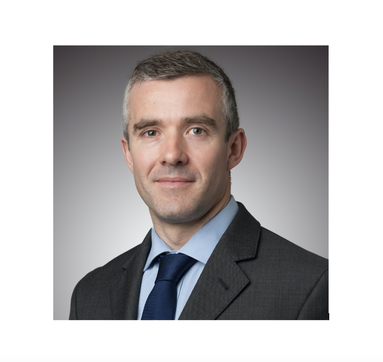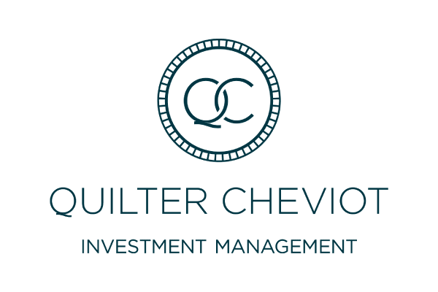The future of Fund Selection
8 SEPT, 2020
By Ana Andrés

The COVID crisis has accelerated trends in the asset management industry that directly affect fund selectors. In order to know how the current healthcare crisis and market shifts affect Fund Selection we asked Nick Wood, Head of Fund Research at Quilter Cheviot.

Nick Wood leading a team which has dual research responsibilities for both Quilter Cheviot and the Quilter Investors Multi-Asset team. Nick previously work at US asset manager Capital Group for 10 years, and investment consultancy Stamford Associates. Nick graduated from Birmingham University with a degree in Economics and a Masters in Russian and Eastern European Studies. He is a Chartered Financial Analyst (CFA) charter holder and an Associate of the CISI. Externally, Nick sits on the investment committees of King’s College London and the Cystic Fibrosis Trust.

A new paradigm in Fund Selection
The Covid-19 pandemic has brought dramatic changes to the investing landscape. It’s rare to meet with a fund manager and not hear views on how some parts of the market are benefitting from the acceleration of long-term trends, whilst others are seeing their declines hastened. So, what about our own fund research industry? Whilst the investment industry is always ongoing change, it does seem to have fast-tracked certain trends that have a direct impact on what we do.
Firstly, the manager merry-go-round continues to gather speed. In other words, manager turnover, whether due to departures or fund group M&A, has not slowed as a result of the virus. In my view we are only going to see an ongoing consolidation of the fund management industry, particularly among active managers. These fund groups either need scale to compete with the passive investors, or they need to carve out their own niche, which tends to mean they will remain small boutiques.
It is the former group that is really going to drive change – with examples such as Franklin Templeton acquiring Legg Mason and Jupiter acquiring Merian, two deals that were not hampered by the pandemic. Each is unique in how they approached the deal and its aftermath, but each tends to pose a new question for the fund selector – is the fund that we hold still worthy. As part of this we need to consider if the manager going to be retained, understand what happens to the team supporting them and how this new dynamic will work. A three year track record may not be worth much if the team and structure that has created it has materially changed, and historic quantitative analysis cannot replace kicking the tyres, even if that is virtually.
In the UK both because and despite of the pandemic, we have continued to see a lot of individual manager movement. In some cases that has been a change brought on by poor performance, and more likely the beaten-up value biased manager rather than the ever enthusiastic growth manger. We have also just gone through the UK’s Assessment of Value exercise for the first time, and are beginning to see a few funds closing or merging on the back of those conclusions. As investors get more familiar with these reports I suspect that will continue drive change. There has also been a surprising amount of manager change by choice however, with fund managers being tempted to move to alternative investment houses or to set up their own boutiques. Again, every manager change requires a new qualitative analysis – do you remain invested, follow the manager or do something else? Making the right choice is a key part of the fund selector’s role, and I’d argue in many ways just as important as finding that top performing manager. Knowing when to exit and avoid significant underperformance is critical to client outcomes.
The other major trend is Environmental, Social and Governance (ESG) issues. Any theories that the pandemic would place this on the back burner were rapidly disproved. From my teams’ perspective, the ever-increasing interest and regulation has brought considerable extra quantitative and qualitative analysis to meetings and recommendations. Asset managers as a group are seeking to significantly improve what they do in many cases, so much can change in the assessment of a manager even over the course of six months. From a quantitative viewpoint, some of the polar opposite results produced by different data providers adds to the complexity. I don’t doubt that at some point in the next few years this will settle down somewhat. We have found that one-to-one conversations with managers are the best way to get under the skin of an ESG process.
So what conclusions can we draw from these changes? Firstly, the rate of change in our industry only seems to be accelerating, and these changes are going to require more qualitative inputs from fund researchers. The demand for our services is likely to increase rather than decrease – automation is one of the buzzwords of today, but the machines don’t yet have our jobs. On the flip side, the ongoing move to passive is perhaps the counter balance. Of course, we need to select the right passive investment, but it tends to be a somewhat simpler analysis. Overall however, I would predict that the skills of fund researchers will continue to develop and ultimately be sought after, and that the need for in-depth qualitative assessments, whether that be via your new favourite video conference system or perhaps face-to-face again one day, will only increase from here.


